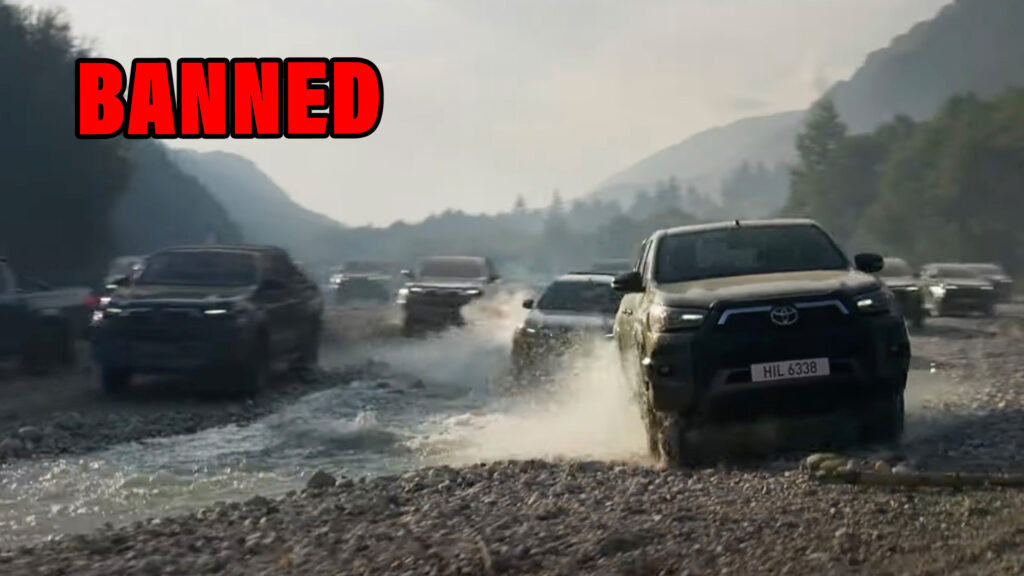Though Toyota hasn’t offered the Hilux in the U.S. for almost 30 years, the light truck continues to win fans in the rest of the world for its practicality, mechanical strength and ability to cross almost any terrain you’re realistically likely to encounter.
But the Hilux failed to win fans at the UK’s advertising watchdog, who ruled that a campaign showcasing the truck’s off-road ability encouraged drivers to take to the dirt at the expense of the planet. The case is believed to be the first in which the Advertising Standards Agency has blocked an ad for showing a lack of social responsibility regarding the environment.
Related: Toyota Considering Corolla-Based Pickup Truck For 2027 To Take On Ford Maverick
The case raised with the ASA by Adfree Cities, a group trying to rid public spaces of marketing material, centered around two adverts that originally aired back in 2020. The first is a video aired on social media that contained footage of a swarm of Hilux trucks driving across a river bed like a herd of wild animals in a nature documentary while a voiceover tells us we’re looking at “one of nature’s true spectacles,” and finishes with the words “Toyota Hilux. Born to roam.” The second banned ad is a poster picturing showing another swarm of Toyota trucks kicking up dirt in a desert-like scene, under the headline “Born To Roam.”
In its defense, Toyota said that the Hilux was “meant for the toughest environments” and that certain industries like farming and forestry had a genuine need for the kind of all-terrain capability shown in the adverts. It also said that the footage was taken in Slovenia on private land with permission of the owner, and that the brand’s efforts to electrify cars since 1997 proved how committed it was to caring for the planet.
But while it acknowledge that the scene in the video was pure fantasy, and that Toyota was trying to target customers who might genuinely need a truck with real off-road chops, the ASA ruled that the ads “presented and condoned the use of vehicles in a manner that disregarded their impact on nature and the environment.”





